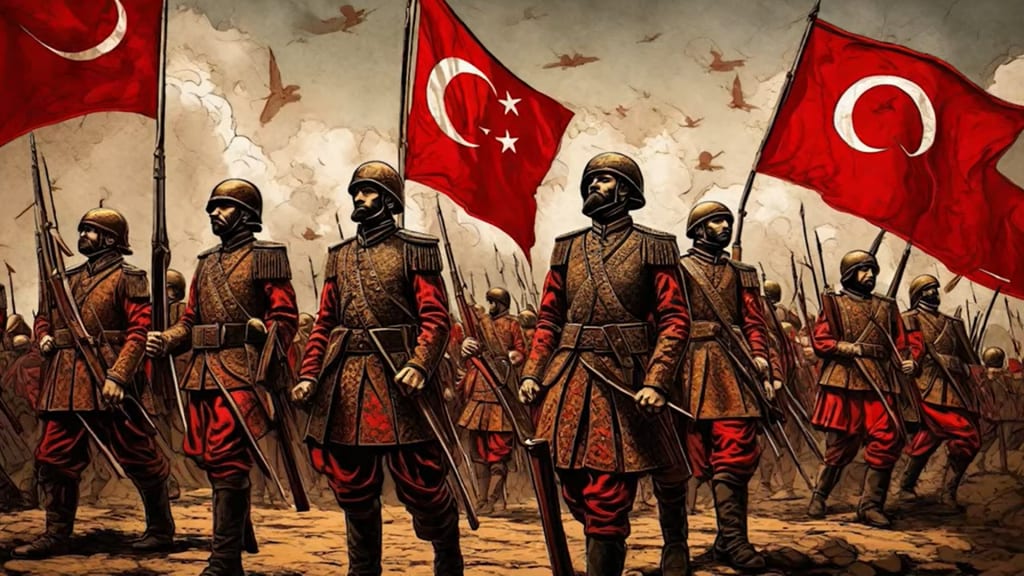
The Ottoman Empire
The Ottoman Empire was a vast and powerful empire that lasted for over 600 years. It was founded in 1299 by Osman I, a Turkish warlord, and reached its peak in the 16th century under Suleiman the Magnificent. The empire controlled territory in Europe, Asia, and Africa, and its influence extended to the Americas.
The Rise of the Ottoman Empire
The Ottoman Empire began as a small Turkish principality in northwestern Anatolia. Osman I was a skilled warrior and leader, and he quickly expanded his territory by conquering neighboring principalities. By the 14th century, the Ottomans had become a major power in Anatolia.
In 1354, the Ottomans crossed the Dardanelles and began to conquer territory in Europe. They quickly conquered Bulgaria, Serbia, and parts of Greece. In 1453, the Ottomans captured Constantinople, the capital of the Byzantine Empire. This was a major turning point in Ottoman history, as it gave the empire control of the Mediterranean Sea.
The Peak of the Ottoman Empire
The Ottoman Empire reached its peak in the 16th century under Suleiman the Magnificent. Suleiman was a brilliant military leader and administrator. He expanded the empire's territory to include Hungary, Transylvania, and parts of Iraq and Iran. He also built a number of impressive monuments, including the Süleymaniye Mosque in Istanbul.
The 16th century was a time of great prosperity for the Ottoman Empire. The economy was strong, and the arts and sciences flourished. The empire was also a relatively peaceful time, with few major wars.
The Decline of the Ottoman Empire
The Ottoman Empire began to decline in the 17th century. The empire was plagued by a number of problems, including corruption, economic stagnation, and military defeats. The empire also lost territory to European powers, such as Russia and Austria.
The decline of the Ottoman Empire continued in the 18th and 19th centuries. The empire was defeated in a series of wars with Russia, and it lost more territory. The empire also faced internal challenges, such as nationalism and rebellion.
The Fall of the Ottoman Empire
The Ottoman Empire finally collapsed in 1922. The empire was defeated in World War I, and it was partitioned into several smaller states. The last Ottoman sultan, Mehmed VI, was exiled from Turkey.
The Legacy of the Ottoman Empire
The Ottoman Empire had a profound impact on the development of world history. The empire spread Islam to Europe and the Balkans, and its military prowess helped to shape the balance of power in the Mediterranean region. The empire also made significant contributions to art, architecture, and culture.
The Ottoman Empire's legacy can still be seen today in many aspects of world affairs. The empire's former territories are home to a diverse population of Muslims, Christians, and Jews. The empire's architecture can be found in cities across Europe, Asia, and Africa. And the empire's culture has influenced the development of art, music, and literature in many parts of the world.
Some of the significant contributions of the Ottoman Empire include:
The spread of Islam: The Ottoman Empire was a Muslim empire, and it played a major role in the spread of Islam to Europe and the Balkans. The empire built mosques, madrasas, and other Islamic institutions in its territories.
Military prowess: The Ottoman Empire was a powerful military force, and it played a major role in shaping the balance of power in the Mediterranean region. The empire's military was well-trained and equipped, and it was often successful in battle.
Art and architecture: The Ottoman Empire produced a rich body of art and architecture. The empire's architecture is characterized by its use of domes, minarets, and other Islamic motifs.
Culture: The Ottoman Empire had a rich culture that influenced the development of art, music, and literature in many parts of the world. The empire's culture is characterized by its diversity and its fusion of Islamic and European influences.
The Ottoman Empire was a complex and multifaceted empire that had a profound impact on the development of world history. The empire's legacy continues to be felt today in many aspects of world affairs.
About the Creator
Hmid Abderrahmane
Abderrahman hmid, 23, a skilled content writer with translation expertise. Experienced in journalistic translation across fields. Owns a collection of unpublished fiction and creative stories awaiting an online debut. Thanks!






Comments (1)
About me in whatssap +212 94440855